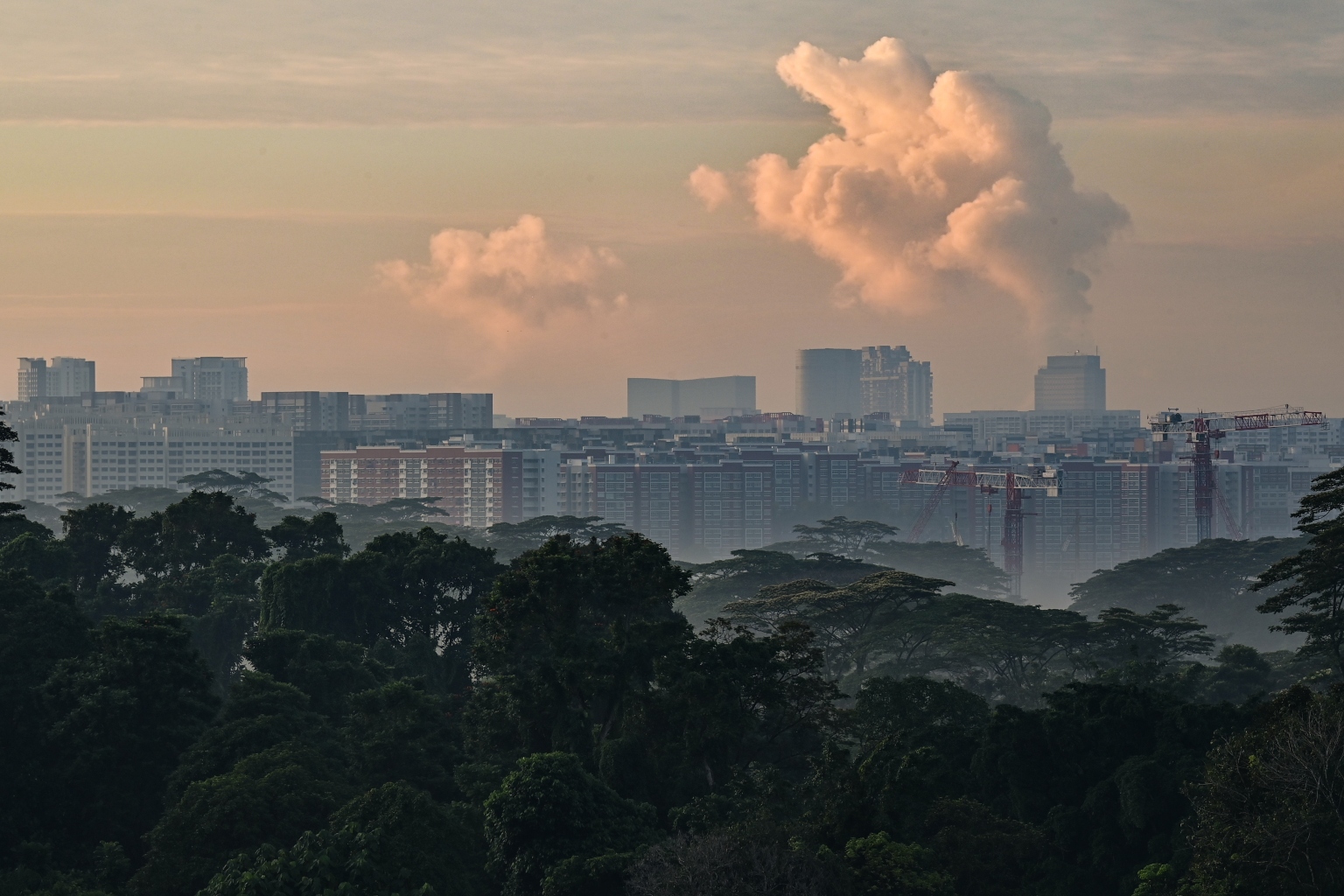Three key levers needed by S'pore to reach net-zero goal by 2050: Teo Chee Hean
Sign up now: Get ST's newsletters delivered to your inbox

Climate change is a "wicked problem" that requires all hands on deck, said Senior Minister Teo Chee Hean.
ST PHOTO: LIM YAOHUI
Follow topic:
SINGAPORE - The Republic will rely on three levers to reach its net-zero goal by 2050, encompassing policies to embed environmental sustainability more meaningfully into daily lives, private financing to draw capital to sustainable projects, and research and development (R&D) for more sustainable solutions in the longer term.
Outlining these three measures at Singapore investment company Temasek's Ecosperity Week, a yearly sustainability conference, on Tuesday (June 7), Senior Minister Teo Chee Hean said these are part of Singapore's strategy to accelerate its transition to net zero.
He noted that the country's Long-term Low Emissions Development Strategy will be updated later this year.
The strategy was first published in 2020, with aims to halve emissions from its peak in 2030 to 33 million tonnes of carbon dioxide equivalent emissions by 2050, with a view to achieve net-zero emissions as soon as viable in the second half of the century.
"Before we finalise our plans, we will consult closely with industry and citizen stakeholder groups. We all need to work together and play our part to meet this climate ambition," he added.
While policy has an "important role" in combating climate change, it is not just about reducing carbon emissions but also achieving Singapore's sustainable development goals, said Mr Teo.
This includes creating a circular economy where waste is eliminated and the value of natural resources is maximised.
"Governments need to have the right policies that get to the root of the problem, and create solutions at the system level," he added.
"For instance, Singapore was the first South-east Asian country to introduce a carbon tax, and we recently set out a clear timeline to raise our broad-based carbon tax to reach between $50 and $80 per tonne by 2030."
Mr Teo, who is also Coordinating Minister for National Security, noted that climate change is a "wicked problem" that requires all hands - including the private sector - on deck.
"Businesses will be affected not just by the primary effects of climate change, but also by the second- and third-order effects, disrupting their operating models and supply chains. Growing awareness about the climate crisis has also changed how people define value in business, and what values a company upholds," he said.
Therefore, companies can no longer focus solely on short-term returns from current assets and business lines, and instead need to incorporate decarbonisation and climate risks into their strategies to remain competitive in the long-term.
Mr Teo noted that Temasek had on Monday (June 6) launched GenZero, an investment company focused on carbon markets and accelerating decarbonisation solutions.
This will direct more private capital towards green opportunities and encourage companies to place greater emphasis on delivering sustainable long-term financial returns, said Mr Teo.
Finally, R&D will be needed to help Singapore overcome its resource constraints and unlock greener and more sustainable solutions.
In particular, the Republic needs to continue to explore emerging technologies that could bring about more sustainable solutions for the long term such as carbon capture, utilisation and storage as well as green hydrogen.
"Singapore has also been putting in place the building blocks to support a high-integrity carbon credits ecosystem - by developing robust methods for accounting in nascent areas like blue carbon nature-based solutions, and exploring satellite technology for measuring and monitoring," he added.
Blue carbon refers to the carbon stored in oceanic and coastal ecosystems.
Blue carbon refers to the carbon stored in oceanic and coastal ecosystems.
Temasek chairman Lim Boon Heng said the theme for the Ecosperity conference this year, which is in its eighth edition, is "Ecosperity is Accelerating Action At Scale".
"This reflects the brisk activities needed in the race for net zero as countries transition to more sustainable economies," he added.
The Ecosperity conference, which is being held from Tuesday to Thursday at the Sands Expo & Convention Centre, will host leaders such as Mr Bill Winters, group chief executive of Standard Chartered; Mr Mark Carney, co-chair of the Glasgow Financial Alliance for Net Zero and vice-chair of Brookfield Asset Management; and Minister for Sustainability and the Environment Grace Fu.
Mr Teo noted that Singapore has made significant progress over the years, focusing much on why climate action is needed.
"But today, we have moved on to talk about the "how"... and form partnerships involving the public, private and people sectors to create new solutions," he added.

